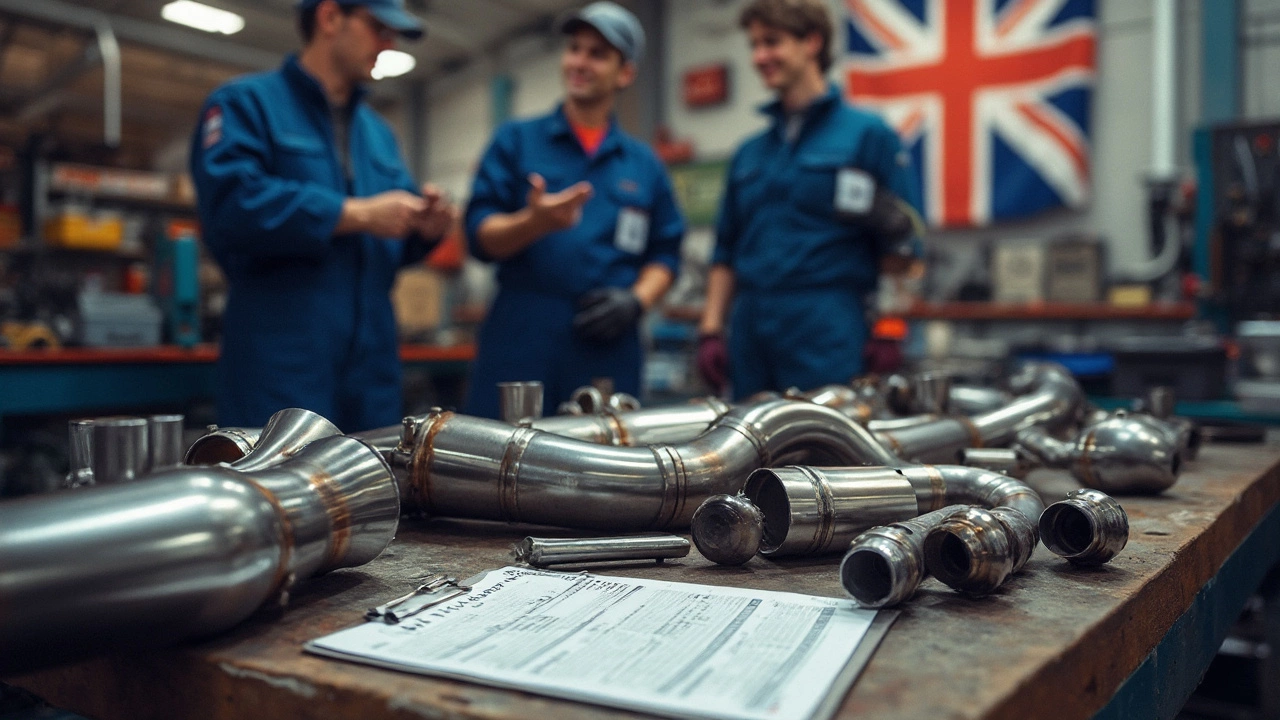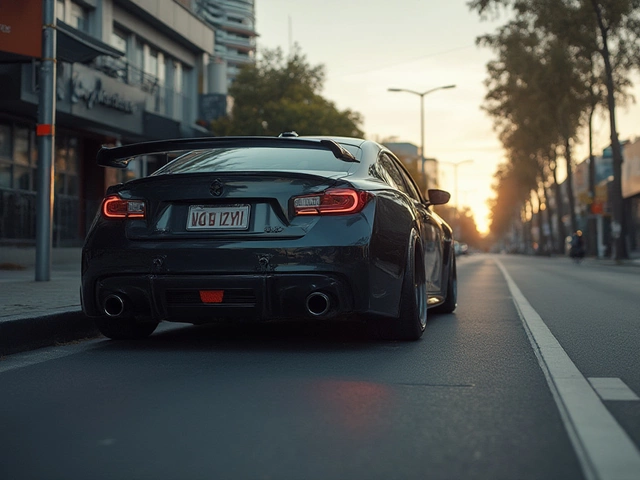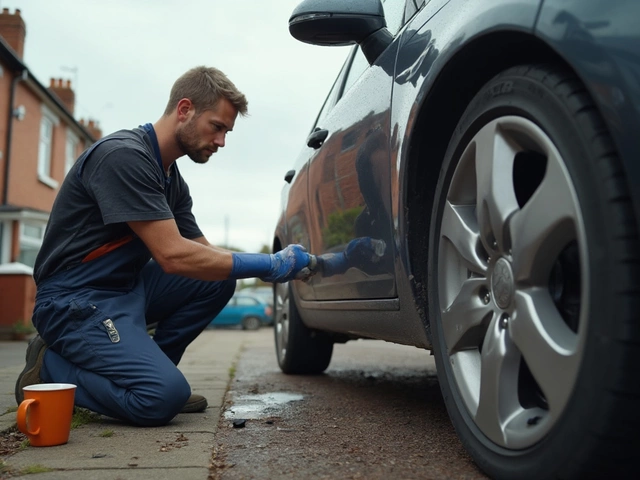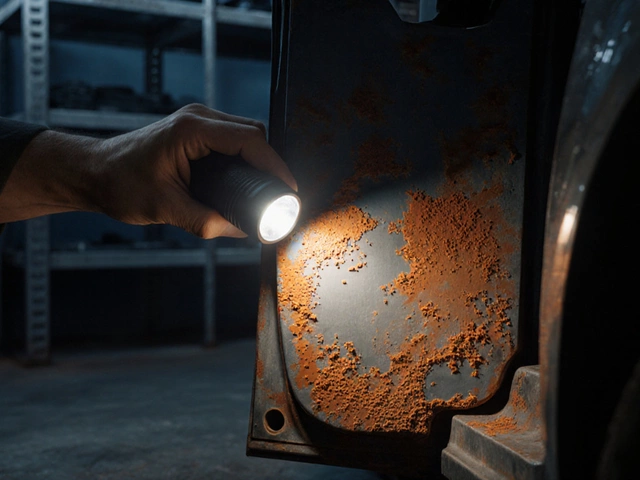Sticker shock hits hard when you ask about a custom exhaust system—and the prices all over the map don't help. You could hear $500 from one shop or $3,000 from another. What's going on?
The thing is, custom exhausts aren't one-size-fits-all. Everything affects the price: what kind of car you drive, what you're hoping to get out of it (looks, sound, horsepower), and even the shop’s reputation. Materials matter too. Stainless steel, for example, lasts longer and fights off rust, but it’s pricier than regular steel or mild steel options.
No two jobs are exactly alike, so it isn’t just about parts—it’s skilled labor and the time it takes to fit everything just right. A quick weld job is cheaper than a full system that snakes through a modern sports car. And if you’re eyeing a fancy dual-exit setup, get ready to shell out more.
- Why Custom Exhausts Vary in Price
- Typical Costs You’ll See
- The Real Price Drivers
- Tips to Save Money or Get Better Results
Why Custom Exhausts Vary in Price
Walk into any exhaust shop and ask for a quote, and you might feel like you're gambling—the range is wild. That’s because several factors come into play, and even small choices have a big impact on your bill.
- Custom exhaust cost depends a lot on materials. Stainless steel is top-notch for lasting power, but it costs more than mild steel. Aluminized steel is a cheaper middle-ground, but it won’t handle salt and moisture like stainless will.
- The complexity of your car’s layout matters. A humble sedan with basic bends is way easier (and cheaper) to customize than a modern SUV with all sorts of frame obstructions and electronic sensors sticking out everywhere.
- Designs add up quickly. A single straight pipe or axle-back setup is simple. But run dual exhausts with crossover pipes, and the shop has to double their work—double pipes, more bends, more welding, more brackets.
- Labor rates are a major price driver. In 2025, most exhaust shops across the U.S. and Canada charge anywhere between $80 and $135 per hour. If you’re in a big city or taking your ride to a specialty tuner, expect the high end of that range.
- Your car’s age even plays a role. Modern cars with hidden underbodies, plastic panels, or a mess of emissions controls take more time (and nerves) for any installer.
- Sound and performance gear—like straight-through mufflers or performance catalytic converters—cost extra. Some of these upgrades require special tuning so your car doesn’t throw a check engine light or fail emissions.
Here’s a quick breakdown of how some of these factors can stack up:
| Factor | Typical Impact on Price |
|---|---|
| Basic Material Choice | $150–$600 difference |
| Car Make/Model | $300–$1,200 difference |
| Labor Complexity | $200–$1,000 difference (varies by hours needed) |
| Performance Upgrades | $100–$800 extra |
| Location (Labor Rate) | Up to $55/hr difference |
So if you ever wondered why your buddy paid half what you’re being quoted, it’s probably not favoritism—it’s all these details adding up, for better or worse.
Typical Costs You’ll See
Let’s cut right to it: a custom exhaust cost depends a lot on what kind of setup you want. For just a basic custom axle-back system—usually just swapping out the muffler and tips—you’re looking at $300 to $700, parts and labor. A full cat-back system, which replaces everything from the catalytic converter back, typically ranges from $800 all the way to $1,500 for regular jobs. If you go for the premium stuff, like full stainless steel with mandrel bends and fancy tips, think $1,500 to $2,500, maybe even more if your car is a higher-end model or the shop does really intricate work.
Vintage cars, trucks, and performance builds crank the price up too. Exhaust work on a classic muscle car or something with a tight undercarriage can hit $2,000 to $4,000 since it’s harder to get right and takes more labor hours.
Here’s a quick breakdown of what shops around the US commonly charge:
- Muffler or axle-back setups: $300–$700
- Mid-range cat-back systems: $800–$1,500
- Full custom setups (stainless steel, complex routing): $1,500–$3,000+
Material makes a big difference too. Regular steel is the cheapest, but it rusts out much faster—figure it’ll save you $100–$300 upfront but might cost way more in the long run. Stainless steel bumps up the price, but a lot of folks like it because it looks clean and lasts way longer against salt and water.
Don’t forget labor. Most exhaust shops charge by the hour—anywhere from $75 to $120+ an hour in 2025 depending on your region. If your car is lowered, lifted, or has tight clearances, expect the job to take longer and cost more.
One tip: get multiple quotes. Shops aren’t shy about quoting wildly different prices for the same job, so calling around pays off. And always ask what the price includes—sometimes “custom” just means tack-welded pipes, while other times it’s real custom bending and top-notch welding work.
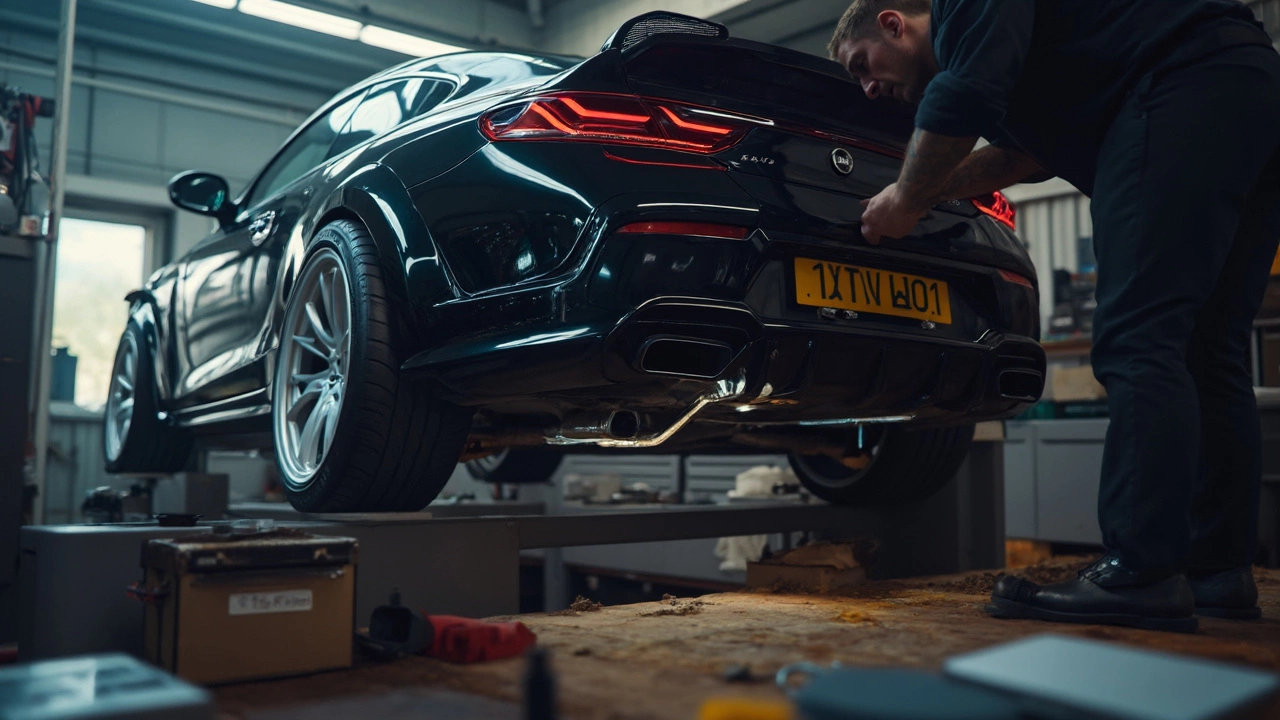
The Real Price Drivers
A few things crank up or lower the cost of a custom exhaust, and knowing what they are helps keep surprises off your bill. Let’s break down the main factors that steer the price.
- Type of Vehicle: Sports cars with tight underbodies or luxury rides packed with tech need more custom work. A simple V6 sedan doesn’t eat up as much shop time as a tricked-out Corvette or BMW M3.
- Materials Used: Stainless steel is top notch for its durability and looks, but it usually adds a few hundred bucks over mild steel. Titanium exists, but unless you're going race-car crazy, it's usually overkill and expensive (think $1000+ just for the material).
- Design Complexity: A straight pipe replacement costs way less than a dual-exit system with X-pipes, custom tips, and creative bends. Every curve and weld means more shop hours.
- Labor Rates: Location matters. Labor in big cities often costs double what you’ll pay in small towns. A typical exhaust job can take 2–6 hours, and shop rates jump from $75 in rural areas to $150+ an hour in places like Los Angeles or New York.
- Shop Reputation: Shops known for killer work or tuning high-end rides might charge a premium. Sometimes, you’re paying for the name—but also for less headache and better results.
- Extra Features: Things like fancy exhaust tips, ceramic coating, or a built-in cutout for extra noise all get added to the bill. Even choosing a name brand muffler over a generic one can bump the price by $200 or more.
Here’s a real-world example so you can get a feel for what different setups cost:
| Setup | Low-End Price | High-End Price |
|---|---|---|
| Axle-back (basic, mild steel) | $350 | $700 |
| Cat-back (stainless, mid-range) | $800 | $1,800 |
| Full custom dual exit (stainless) | $1,800 | $3,500+ |
The truth? The most important cost factor is what you actually care about—just a new sound, or max power and long-term durability. Get clear before you walk in, and you’ll avoid most nasty surprises on the invoice.
Keep in mind, the custom exhaust cost is almost never just about parts. Labor, shop time, and even little upgrades add up, so compare a few quotes and ask direct questions about what’s included. That’s how you get real value, not just a flashy tailpipe.
Tips to Save Money or Get Better Results
When it comes to getting a custom exhaust, there are ways to avoid overspending and still walk away with great results. Here’s how:
- custom exhaust cost can swing a lot by material. Stainless steel lasts the longest but costs the most up front. If you live where it never snows or salts the roads, sometimes mild steel will do just fine—and shave a few hundred bucks off the project.
- Always get quotes from at least three shops. Labor rates can differ by $30–$60 an hour depending on location and shop reputation.
- If you’re not chasing every last horsepower gain, ask about partial custom jobs. Sometimes just swapping the muffler and tips gets you the rumble and look you want without a full-bore system.
- Bring in your own parts if the shop allows it. Sometimes you can catch a sale online for quality parts. But double check what brands your installer is cool with—some, like Borla or Magnaflow, are shop favorites for a reason.
- Don’t skip the warranty. It’s common for good shops to back their work for at least a year, and it’s worth asking. If they don’t offer anything, maybe keep walking.
Don't forget to check if you really need all the extras shops try to upsell—things like expensive heat wrap or “performance” tips rarely make a difference for daily drivers.
| Region | Average Labor Rate (per hour) |
|---|---|
| West Coast | $110 |
| Midwest | $85 |
| East Coast | $100 |
| Southern States | $75 |
Be clear up front about your budget and what you're after—shops see all kinds, from folks wanting a deep growl to those just after something different for Cars & Coffee. Honest talk saves you and the mechanic a lot of back-and-forth (and cash, too).

